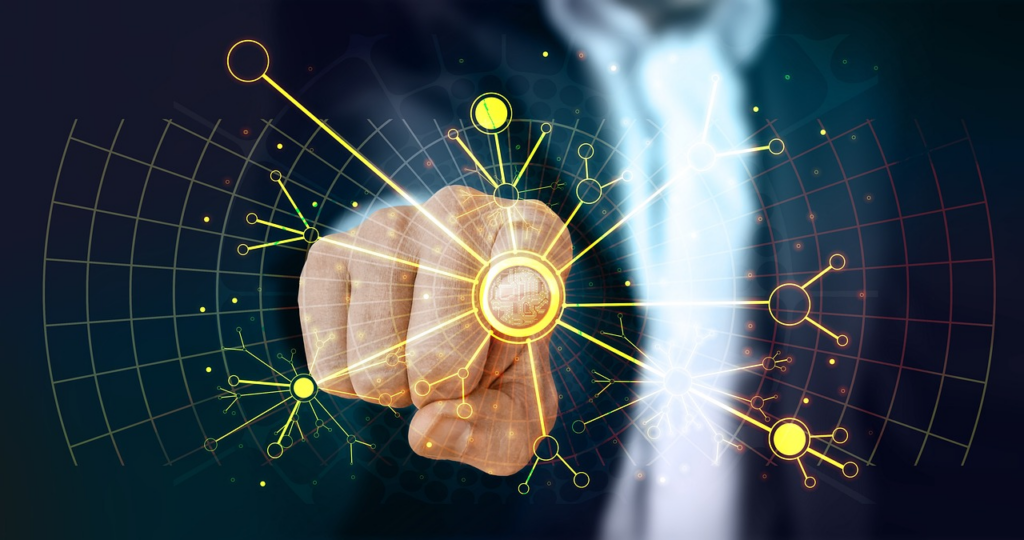Advertisement
In the age of technological revolution, Artificial Intelligence (AI) has emerged as a transformative force in all aspects of human life. From virtual assistants to recommendation algorithms, AI shapes our daily experience. However, its rapid advance also raises profound ethical questions.
The Growth of AI and its Impacts
AI is expanding rapidly in many areas, including medicine, transportation, education and many others. It offers promises of efficiency, convenience and innovation. However, its growth is also intrinsically linked to complex ethical dilemmas. For example, AI algorithms used in criminal justice systems can introduce bias and discrimination. Similarly, automation in the workplace raises concerns about unemployment and economic inequality.
Advertisement
Ethical dilemmas in AI
The rise of Artificial Intelligence (AI) has unleashed an era of unprecedented technological innovation, promising to revolutionize every aspect of society.
However, as AI becomes increasingly integrated into our lives, complex ethical dilemmas arise that require careful thought and immediate action. These dilemmas cover a wide range of issues, from algorithmic bias and privacy to responsibility and socio-economic impact.
Advertisement
Algorithmic bias
Algorithmic bias is one of the most prominent and worrying ethical dilemmas in the development and implementation of Artificial Intelligence (AI). It refers to the tendency of AI algorithms to reproduce or amplify biases present in training data, resulting in discriminatory or unfair decisions.
The phenomenon of algorithmic bias has its roots in the very nature of the data sets used to train AI algorithms. Often, these data sets are collected from sources that reflect the flaws and prejudices of human society. For example, if a historical dataset used to train a hiring algorithm reflects the gender or racial discrimination present in past hiring processes, the algorithm may learn to replicate these discriminatory patterns.

Privacy and surveillance
One of the main ethical dilemmas in the age of Artificial Intelligence (AI) is the delicate balance between privacy and surveillance. While AI offers numerous advantages and conveniences, its use often requires the massive collection and analysis of personal data, raising serious concerns about privacy and surveillance.
Indiscriminate data collection feeds many AI systems, allowing algorithms to extract valuable insights and make automated decisions. However, this practice can also compromise individual privacy and fundamental human rights. From mass surveillance by governments to data collection by companies for targeted marketing purposes, invasion of privacy has become a growing concern in our increasingly digitized society.
Responsibility and transparency
As Artificial Intelligence (AI) continues to integrate into various aspects of modern life, there is a pressing need to address issues of accountability and transparency. These ethical aspects are key to ensuring that AI systems are developed and implemented in an ethical and fair manner, and to maintaining public trust in the technology.
Accountability in AI refers to identifying and assigning responsibility for the actions and decisions taken by AI systems. However, the complexity of AI algorithms often makes it difficult to determine who is responsible for unwanted results or harmful behavior. For example, in cases of accidents involving autonomous vehicles, the question arises of who is responsible: the vehicle manufacturer, the software developer or the system user?
Furthermore, the lack of transparency in AI algorithms presents additional challenges for accountability. Many AI algorithms are black boxes, meaning that their inner workings are neither fully understood nor accessible to end users. This makes it difficult to identify and correct algorithmic errors or biases, as well as to assign responsibility for harmful or discriminatory decisions.
Impact on employment and inequality
The increasing integration of Artificial Intelligence (AI) in various industries is redefining the employment landscape and exacerbating socio-economic disparities. While AI offers efficiency, automation and innovation, its impact on the labor market and wealth distribution presents significant ethical challenges that require careful reflection and deliberate action.
One of the main ethical dilemmas is the potential for AI-driven automation to replace traditional jobs. As AI algorithms become more sophisticated, many tasks previously performed by humans could be automated, leading to a reduction in demand for labor in certain sectors. This could result in structural unemployment and outplacement difficulties for workers whose skills become obsolete due to automation.
Autonomy and control
With the increasing integration of Artificial Intelligence (AI) into various aspects of our lives, a fundamental ethical dilemma arises regarding autonomy and control over automated decisions. As we increasingly rely on AI algorithms to make important decisions, concerns arise about who really has control and to what extent we can trust the autonomy of these systems.
The issue of autonomy in AI refers to the ability of AI systems to make independent decisions without direct human intervention. As AI algorithms become more advanced, they are able to process large amounts of data and perform complex analysis to reach conclusions and take action. This raises questions about the extent to which we can trust these automated decisions and whether they are in line with our values and goals as a society.
Addressing Ethical Dilemmas
As Artificial Intelligence (AI) becomes an increasingly ubiquitous presence in our society, a number of complex ethical dilemmas arise that require a careful and proactive approach.
From issues related to algorithmic bias and privacy to concerns about responsibility and control, the ethical challenges associated with AI are diverse and multifaceted.
Ethical development
Ethical development is a fundamental approach to ensuring that Artificial Intelligence (AI) is designed and implemented responsibly, considering the social, ethical and moral impacts of its applications. In a world where AI is becoming increasingly integrated into our daily lives, it is essential that technology creators incorporate ethical considerations from the earliest stages of development.
An ethical approach to AI development involves several key aspects:
- Diversity in data sets: The data sets used to train AI algorithms should be diverse and representative of the population that will be affected by the use of the technology. This helps to reduce algorithmic bias by ensuring that the algorithm is trained in a variety of contexts and experiences.
- Ethical impact assessment: Before implementing AI systems on a large scale, it is important to carry out ethical impact assessments to identify and mitigate possible unintended consequences. This involves analyzing how the technology could affect different social groups and whether there is potential to cause harm or perpetuate injustices.
- Transparency and accountability: AI developers must be transparent about how their algorithms work, what data is used and how decisions are made. This allows for greater accountability and enables users to better understand how the technology is being used and how it can impact their lives.
- Incorporation of ethical values: Ethical values, such as justice, fairness, transparency and respect for human rights, must be incorporated into the design and implementation of AI systems. This requires careful reflection on the ethical consequences of each design decision and a deliberate approach to ensuring that the technology promotes the common good.
- Interdisciplinary collaboration: The ethical development of AI requires an interdisciplinary approach that integrates perspectives from areas such as ethics, law, social sciences and humanities. Collaboration between different disciplines is essential to ensure a holistic understanding of the ethical dilemmas involved and to identify effective and sustainable solutions.
Proper regulation
In the face of the complex ethical challenges posed by Artificial Intelligence (AI), appropriate regulation emerges as a vital tool to promote the development and ethical use of this innovative technology. The implementation of effective policies and regulations is essential to ensure that AI is developed and used responsibly, respecting ethical values and protecting individual rights.

Proper regulation in the age of AI can address several key issues:
- Transparency standards: Regulations can require companies that develop and use AI systems to be transparent about how their algorithms work, what data is used and how decisions are made. This allows for greater public understanding and scrutiny of AI practices.
- Audits and ethical impact tests: Regulations can require regular audits and ethical impact tests to be carried out on AI systems to identify and mitigate bias, errors and unintended consequences. These measures help ensure that the technology is developed and implemented in an ethical and responsible manner.
- Protection of privacy: Regulations can establish clear guidelines to protect the privacy of individuals in relation to the collection, storage and use of personal data in AI systems. This could include restrictions on excessive data collection and the implementation of robust security measures to protect sensitive information.
- Responsibility and accountability: Regulations can define clear responsibilities for developers, manufacturers and users of AI systems, ensuring that they are responsible for any damage caused by automated decisions or actions. This promotes a culture of accountability and ensures that responsibility is assigned when necessary.
- Common ethical standards: Regulations can establish common ethical standards for the development and use of AI, promoting a consistent and harmonized approach worldwide. This facilitates international cooperation and helps ensure that AI is used to promote the common good on a global scale.
Education and awareness
In the age of Artificial Intelligence (AI), education and awareness-raising play crucial roles in fostering a deeper understanding of the ethical dilemmas associated with the technology and empowering individuals to make informed decisions about its use. As AI becomes increasingly integrated into our lives, it is essential that people are well informed about its benefits, risks and ethical implications.
- Understanding the ethical principles of AI: Education about the ethical principles underlying AI, such as transparency, accountability and fairness, is key to empowering individuals to critically evaluate the impact of technology on their lives and on society as a whole. This involves providing information about how AI algorithms work, how they are trained and how they can influence decisions and behavior.
- Promoting digital literacy: Digital literacy education includes developing the skills to understand and use AI effectively and ethically. This may involve learning basic programming concepts, as well as understanding the principles behind AI algorithms and their application in different contexts.
- Awareness of privacy and data security: It is essential to educate people about the privacy and data security risks associated with the use of AI and how to protect their personal information in an increasingly digitized world. This can include information on data collection practices, privacy policies and tools to protect privacy online.
- Discussions on ethics and responsibility: Awareness of AI's ethical dilemmas can be promoted through open and inclusive discussions on emerging ethical issues such as algorithmic bias, work automation and mass surveillance. These discussions encourage critical reflection and civic engagement around the ethical implications of technology.
- Training professionals: In addition to education for the general public, it is important to train professionals in fields related to AI, such as software development, digital ethics and data governance. This ensures that professionals working with AI are equipped with the knowledge and skills needed to address ethical issues effectively in their fields.
International collaboration
The ethical challenges of AI are global and transcendental. International collaboration is essential to develop common ethical standards and ensure that AI is used for the common good, rather than harming individuals or communities.
Interdisciplinary approach
Developing ethical solutions to AI dilemmas requires an interdisciplinary approach that brings together experts in ethics, technology, law, social sciences and other relevant areas.
The Future of AI Ethics
As AI continues to become more and more integrated into our lives, the ethical dilemmas associated with it will only become more pressing. It is essential to address these challenges head on, ensuring that AI is developed and implemented in an ethical and responsible manner. Only in this way can we reap the benefits of AI while protecting fundamental human values.
AI ethics is a rapidly evolving field that demands immediate attention and action. Navigating the moral dilemmas in technological development requires an ongoing commitment to ethical reflection, global collaboration and effective regulation. Only with these measures can we ensure that AI is a force for good in society, while respecting fundamental ethical principles.
See also: 10 apps to password-protect your apps and ensure more privacy
March 28, 2024

She has a degree in Languages - Portuguese/English, and is the creator of the Escritora de Sucesso website. As a writer, she seeks to expand everyone's knowledge with relevant information on various subjects. At SoMuchToSayToday, she brings news and content ranging from entertainment to the country's economic situation.


